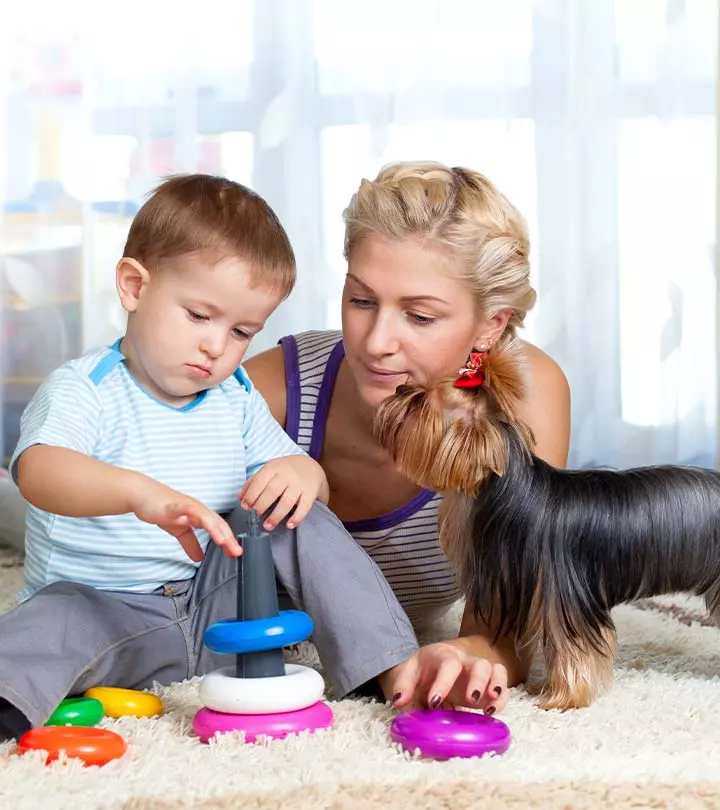
Image: Shutterstock
Imagine walking into the house, and your lovely dog runs after you, wagging its tail, licking you with happiness! Isn’t that a beautiful thought? Pets are just amazing to have around, and they literally relieve you of all the stress and worries. Somehow, they just know when you are upset and tend to cheer you.
But, should this all change when your baby comes in? Should you rid yourself of your pets because your baby is around?
If you suffer from the same dilemma and if you already have a pet and are planning to have a baby, here is what you can do to manage the two amicably under the same roof:
- Get your pet dewormed and vaccinated: This is something that should be a priority. Get your pet dewormed and vaccinated annually. If the task is pending, make sure you are up to it before the baby arrives.
- Train your pet: Most pets can be trained so give proper instructions and train your pet about how he needs to behave while the baby is around. Ensure that your pet doesn’t litter everywhere.
- Lay ground rules: Make some ground rules (such as no sleeping on the baby’s bed, no sniffing baby’s things, and no littering inside the house), and be firm about it. Most pets do behave very well with babies around.
- Introduce gently: Your pet could be possessive of you, so acknowledge the fact and introduce your pet lovingly to the baby. Let him know that his place in your life is safe and secure so that there is no rivalry between your baby and the pet.
- Keep them apart for the initial few months: Keep your pet and the baby apart until the baby is old enough to sleep with the pet. Let them sleep separately.
- Provide special Care: Don’t ignore your pet once the baby arrives. Give it equal or even extra attention if required. Love it equally as you would love your baby. Show and express your love, so your pet knows that you will love it forever.
- Be aware of your pet’s instincts: Pets could be curious, and especially dogs. This means that they may behave differently that you expect them to, behave when the baby arrives.
- Keep an eye: Even if you think your pet is friendly, always watch out with a keen eye when your pet is around with the baby. Some cats and dogs might scratch and bite babies. This could be all-in-the-game kind of thing, but it’s always better to supervise.
- Have a separate place for the pet: Let your pet stay in its home at least for some part of the day if not the entire day. Let it have its food at its place. Keep the baby away from dog’s food, medicines, and litter.
With all that said, pets do love babies! And they in turn teach the kids quite a few things, as mentioned below:
- Babies learn social skills through the pet
- Kids with pets have a strong immune system
- The child not only takes the responsibility of the pet but starts building his own responsibilities as well
- Interacting with a pet builds motor skills in children
- Having a pet inculcates trust and loyalty in children (3)
Pets love children and vice versa. They have fun hanging around together. But take proper precautions so that your baby is safe once he starts crawling and walking. Also, ensure that you own pets that need not necessarily have to live with you in the house all the time. Eventually, they learn to bond with each other effortlessly.
Do share your pet story with us. We would love to hear from you.













